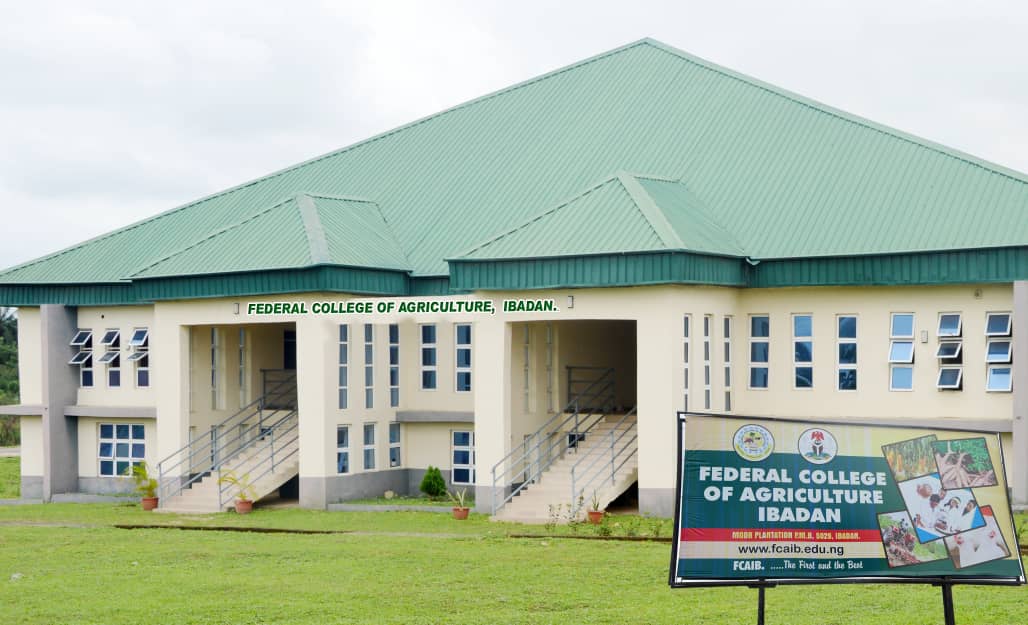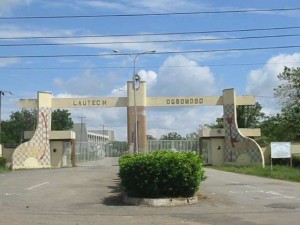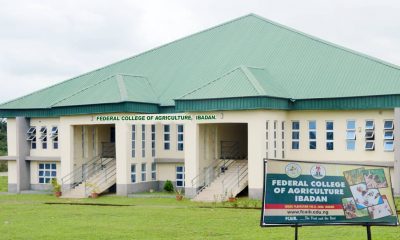Education
LASUSTECH: Getting it right from the start
LASUSTECH: Getting it right from the start By Steven Anu’ Adesemoye
The world over, academic excellence is typically an offshoot of endogenous and enduring culture that has immunity against compromise, but mutation to classic global best practices. This has always been the benchmark that many universities are struggling to catch up with, while many others have considered this rare feat as a sprint and not a marathon.
The outcome of personal research has shown that, designing an evolving and adaptable academic culture requires critical thinking that is capable of espousing need-oriented courses and robust curricula, 360-degree touchpoint digital automation, technology-driven teaching and learning, versatile and creative administration, qualitative manpower, dynamic policy formulation, collaboration and networking, strict internal and external regulations, adequate and purposive funding, branding and Public Relations for Marketing (PRM) and ultimately the mindset of excellence by all stakeholders.
Now that the transmutation of the Lagos State Polytechnic (LASPOTECH) to Lagos State University of Science and Technology (LASUSTECH) has been consummated, the next phase of the process should be to take the advantage of starting afresh into laying the foundation of a specialized university that would become the pride of Lagos and Africa at large. It is possible and in our time too.
Considering the peculiarity of the university, starting with the existing programmes of the former polytechnic to keep people’s jobs won’t be a bad idea. Looking at the bigger picture, this university will need to do a Skill Gap Assessment – what are the industry’s first line needs? Skillsets versus current and emerging ‘need sets’. The Knowledge Gap Deficiencies (KGD) must give way to a systemic approach in the Productive Science and Technology (PS&T) model that is not only unique but 100% result-oriented.
There must also be an environmental scanning of the immediate community to determine the relevant courses and programmes that are community needed. These two needs assessments would help the university to define and develop its core competencies from the beginning. The fourth industrial revolution (industry 4.0) as the current and developing environment for disruptive technologies and trends such as the Internet of Things (IoT), robotics, virtual reality (VR), and artificial intelligence (AI), among others, must be considered. For the community and Lagos as a whole, the university should consider programmes like Ferry Fabrication and Services Technology (Marine Technology); AgriTech and Post-Harvest Processing Technology; Digital Transformation Technology; Integrated Waste Management and Recycling Technology; Alternative/ Renewable Energy Production Technology; Oil and Gas Supports Technology. This is the era of nanotechnology, we can do it.
Automating the whole system, including the management of the new university is key. From admission to graduation, the process must be seamless. One digital solution should connect payments, registration, result processing, administration, information dissemination, library services, etc. No loopholes must be allowed. In this new university, there should not be missing scripts or results. Result, certificate, and transcripts should be ready in less than 72 hours upon request, yes, it is possible. 24/7 internet facilities and handshake with big tech firms would go a long way to position the institution.
Teaching and learning must have a technology interface. This is not a conventional university of marker and board, 70 percent of the learning process must be demonstrated if we must do anything differently. Up to the Ph.D. level (it is the new direction), attention must be given to hands-on practical demonstrations. Only modern and digital laboratories, studios, workshops, and classrooms can deliver the desired results as seen in a well-educated cultured society.
The drivers of LASUSTECH must be able to think like there is no box anywhere. Creativity and ingenuity should guide the administration of the new university. There must be an enduring line of ideation and curation. The principal officers must be fired for excellent development in all forms. In the same vein, if the government is really genuine in setting a standard for this university, the members of the Governing Council must be a mix of blue-chip captains, boardroom technocrats, industry experts, technophiles, philanthropists, and education enthusiasts. This very council should not be made a retirement plan for tired hands. And the university must not be made a dumping ground for the unqualified job-seeking family, friends, and associates. Relying on school fees to undergo a substantial development is no more in vogue, therefore, the business arm of the university must wake up to its responsibility to drive development, while maintenance culture must be entrenched in the core value of the institution.
Skilling, reskilling, upskilling, research, and development are very essential in defining qualitative manpower for the university. Emotional Intelligence (EI) and the excellent mindset of a goal-getter are equally of great importance. Knowledge of what to teach and the skill to teach right would be more appreciated if the lecturers put students at the centre of teaching. Other staff must have a total reorientation to understand that students are customers and kings in their right. To achieve excellence, there must be a systemic adoption of excellent culture across the board.
In making policy, the drivers of the new university may have to borrow some quality templates from the best universities. Policies like the Graduate on Time (GOT) system that guides against lecturer frustrating a student with extra year(s) or unserious student overstaying the period of graduation would be a welcome development. Students accessing lecturers performance and completing progress reports per semester before they (students) can access results is going to improve standards. Digitally monitored compulsory 75 percent attendance and regular use of customized mail/digital wallet would encourage seriousness and dedication. Policies should be made flexible and people-oriented. The Directorate of Students’ Affairs (DSA) should have a policy document that takes care of the students’ welfare, sporting activities, complaints, and graduation.
This is the era of collaboration, co-creation, and networking. LASUSTECH needs to stretch the hands of fellowship to partner universities (home & abroad) for students and staff exchange programmes. The university must also be ready to have a strong tie with the industry, foreign embassies, politicians, government at all levels to attract research grants, chairs, endowments, bursary, and donations.
Aside the statutory National University Commission (NUC) accreditation exercise, the internal and external assessment should be carried out regularly and diligently. The Annual Performance Evaluation (APER) must be holistic and watertight. As part of the culture that must be established from now, only journal articles on Scopus Journal Metrics or indexed journals should be allowed. Inventions, Innovations, creations, and ideations should also be considered for promotion. The OSAE visit should go beyond inspection; it should include government accreditation with well-crafted Key Performance Indicators (KPIs).
There should be the immediate design of a brand strategy that must take care of the rebranding, repositioning, and internal /external communication architecture- brand manual. The ergonomics design of the campus must be fascinating. We are in the woke era, issues should not be allowed to snowball into a crisis. Response time to students’ distress must be swift and effective. Internal communication is as important as external communication, therefore, there must be a structured conflict resolution mechanism, community and government relations.
Lastly, the government must be ready to fund every aspect of the university or give it complete autonomy. It will be easier to partner with firms like Google, Microsoft, among others, to enhance the smooth operation of the university. Apart from the overhead cost, recurrent expenditure, and cost of accreditation, Lagos State Education Trust Fund should aggressively look into infrastructural development, capacity building, research and development, software acquisitions for all Lagos state-owned universities, such as Turnitin, Nvivo, IBM SPSS, ATLAS.ti, RStudio, Orange, Base SAS, OriginPro, TIMI Suite, etc.
As the summary of my piece, I wish to leave stakeholders of the new university with the Times Higher Education for university rankings which, calibrated 13 performance indicators into five areas: Teaching (the learning environment); Research (volume, income, and reputation); Citations (research influence); International outlook (staff, students and research); and Industry income (knowledge transfer).
Steven Anu’ Adesemoye is a researcher in the Department Of Media and Communications, University of Malaysia.
Education
FAB Luxury Court Sets A Rare Benchmark For Excellence In Africa

FAB Luxury Court Sets A Rare Benchmark For Excellence In Africa
~By Oluwaseun Fabiyi
Fab Luxury Court distinguishes itself as the premier choice for reliable investors and proactive developers in Nigeria and Africa.While numerous real estate entities operate within the country, Fab Luxury Court stands out for its exceptional honesty and integrity, delivering on the promises showcased on its social media page to distinguished customers globally.
As of now, no investors, whether domestic or international, have expressed regret over investing in or partnering with Fab Luxury Court. The company’s commitment to accessibility, accountability, and transparent financial reviews sets it apart from its contemporaries, rendering it a prized asset among its extensive clientele worldwide. Thousands of customers continue to patronize Fab Luxury Court due to its impeccable integrity and visionary approach.
*Why is Fab Luxury Court a worthwhile investment that warrants prompt consideration rather than hesitation?*
Fab Luxury Court’s security measures are exemplary and deserving of commendation, providing investors with capital protection through a robust structured framework, transparent reporting, and comprehensive legal documentation, thereby guaranteeing outstanding and secure returns.
Fab Luxury Court has further cemented its position as a leading developer and real estate powerhouse in Nigeria and Africa, currently managing several high-end estates in Maryland, Ikeja, Lagos and its surrounding areas.Fab Luxury Court demonstrates its unwavering commitment to excellence in Nigeria’s real estate sector through its best-selling estates in Ikeja.
Undoubtedly, partnering with and patronizing Fab Luxury Court will significantly contribute to securing your future; as you plan to associate with them in 2027, we encourage you to maintain a positive outlook and unwavering confidence in your future wealth.
Education
Edukate Africa holds summit to tackle funding barrier in education

Edukate Africa holds summit to tackle funding barrier in education
By Ifeoma Ikem
Edukate Africa, an edu-fintech platform is set to host the Disrupt Education Summit Africa (Disrupt ED) aimed at tackling funding barriers, skills gaps and curriculum mismatch in Nigeria’s education system.
The Director of Edukate Africa, Francis Omorojie who disclosed this to newsmen explained that the initiative was driven by the high rate of school dropouts linked largely to financial constraints, particularly at the higher institution
Omorojie said the summit scheduled for January 29 at the University of Lagos will bring together government officials, universities, financial institutions, private sector players and philanthropies to rethink education financing and prepare young Nigerians for the realities of today’s digital workforce.
He said that more than 50 percent of students who drop out of higher institutions do so because they cannot afford tuition and related costs, a situation he described as a major contributor to unemployment, brain drain and irregular migration.
“Africa’s youthful population could either become an economic advantage or a liability, depending on how well education and talent development are managed.
“Education is a fundamental need, but financial exclusion has continued to shut out many promising young people. When students drop out, it feeds unemployment and social instability.
“Our mission is to build innovative and sustainable financial models that keep young Africans in school and help them become productive,” he said.
He noted that Edukate Africa is deploying blended financing solutions that include tuition guarantees, technology driven scholarship platforms, gig and remote work opportunities for students, and partnerships with universities and philanthropies to establish endowment and alumni funds.
He said that the platform pays tuition directly to institutions after verifying students’ admission and academic records, ensuring transparency and accountability for donors.
“The summit would focus on aligning education with the fast changing nature of work, driven by digital transformation, artificial intelligence and emerging technologies as any university curricula are lagging behind workplace realities, leaving graduates ill prepared for employment.
“There is a clear disconnect between what students are taught and what employers need. This summit will create a roundtable where government, academia and the private sector can agree on the skills required for today’s economy and how to integrate them into learning.
“It will also examine education financing models, including how banks and financial institutions can design student friendly funding products, and how existing initiatives such as the Nigeria Education Loan Fund can be strengthened and scaled.’’
Omorojie added that Edukate Africa would use the summit to launch the CommUniversity Endowment Fund, a community led investment fund designed to generate sustainable returns that will be used to sponsor vulnerable students and support young entrepreneurs.
Unlike traditional grant models, he said the fund would invest in revenue generating businesses, with dividends channeled into education support and seed funding for student led startups.
He said the initiative would also promote innovation through activities such as Pitch My Dissertation, Africathon and inter university debates, encouraging students to turn academic research into commercial solutions and job creating ventures.
According to him, over 1,000 students and recent graduates are expected at the summit, with a partners’ pavilion providing employers and organisations direct access to top talent.
He added that Edukate Africa has already supported students in Nigeria, the United Kingdom and Uganda to complete their education, in some cases with relatively small amounts that made the difference between graduation and dropping out.
He said that the ultimate goal is to move beyond access to education and ensure that young people graduate with relevant skills, funding support and pathways into employment or entrepreneurship, thereby contributing meaningfully to Nigeria’s economic development.
Also speaking, Tosin Adebisi, Co-Founder of Edukate Africa said the Disrupt ED Summit was designed as a disruptive and transformative convergence that would move beyond familiar conversations to practical collaboration.
Adebisi said the summit was built around a new framework called Communiversity, which seeks to integrate universities, policymakers, industry, the third sector and students into a single ecosystem.
“Rather than everyone working in silos, Communiversity brings together policymakers, universities, industry and civil society, with students at the centre, to address access to education, the future of work and Africa’s competitiveness.
“Communiversity model would leverage alumni networks, high net worth individuals and diaspora support to unlock sustainable funding for universities.
“The summit is being organised in partnership with the University of Lagos and the University of Birmingham, with support from the Federal Ministry of Education.’’
The dignitaries that would grace the occasion include, Minister of Education, Dr Tunji Alausa; the Provost and Vice Principal of the University of Birmingham, Professor Nick, the Chief Operating Officer of Semicolon Africa, Ms Ashley Immanuel; and the Chief Executive Officer of Sterling One Foundation, Mrs Olapeju Ibikwe
Education
FCAIB is set to launch degree programmes in partnership with FUNAAB

FCAIB is set to launch degree programmes in partnership with FUNAAB
IBADAN, OYO STATE, NIGERIA – In a groundbreaking move, the Federal University of Agriculture, Abeokuta (FUNAAB) has given the green light for the introduction of two innovative degree programmes at the Federal College of Agriculture, Ibadan (FCAIB), set to kick off in the 2025/2026 academic session.
According to an official release e-signed and made available to the media by Mrs. Wilson Oyekemi, Head of the Public Relations Unit of the institution, the newly approved programmes are B.Sc. (Home Science and Management) and B.Agric. (Agricultural Science).
As stated, the next academic session will witness the official commencement of both degree programmes, which constitutes a major breakthrough in the College’s academic development.
Established in 1921, the Federal College of Agriculture, Ibadan (FCAIB), originally known as the School of Agriculture, proudly stands as Nigeria’s and West Africa’s first agricultural institution, with a long and storied history.
The College’s roots trace further back to 1899, when Moor Plantation, Ibadan was established as a model farm to promote rubber cultivation and general agricultural improvement.
By 1905, the station evolved into an experimental research centre, focusing primarily on cotton production and other key agricultural studies.
The formal establishment of the School of Agriculture in 1921 marked the beginning of structured agricultural education in Nigeria.
Following the regionalization of education in 1954, the school relocated to its present site – where it has since grown into a formidable centre of agricultural learning and innovation.
Over the past century, the Federal College of Agriculture, Ibadan, has consistently upheld its mission of contributing to Nigeria’s agricultural development through qualitative education, skills acquisition, and the production of middle-level manpower for the agricultural sector.
The institution remains committed to empowering students with practical, hands-on skills and modern knowledge tailored to meet the evolving needs of agribusiness and food production in the 21st century.
Becoming Nigeria’s Premier Agricultural Institution, FCAIB envisions becoming the foremost agricultural education institution in Nigeria’s tertiary education system – a vision strengthened by its continued academic expansion and infastructural growth.
With over 100 years of continuous service, the Federal College of Agriculture, Ibadan has built a strong reputation as a leader in agricultural education, training, and research across the subregion.
The College currently offers a wide range of National Diploma (ND) and Higher National Diploma (HND) programmes across several disciplines, including:
National Diploma Programmes:
– Agricultural and Bio-Environmental Engineering Technology
– Agricultural Technology
– Home and Rural Economics
– Horticultural Technology
– Cooperative Economics and Management
– Science Laboratory Technology (SLT)
– Computer Science
– Food Technology
– Office Management Technology
– Library and information Science
– Multimedia Technology
– Organic Agricultural Technology
Higher National Diploma Programmes:
– Agricultural and Bio-Environmental Engineering Technology (Farm Power/Post-Harvest Technology/Soil & Water options)
– Agricultural Extension and Management
– Animal Production Technology
– Crop Production Technology
– Horticultural Technology
– Agribusiness Management
– Pest Management Technology
– Science Laboratory Technology (Microbiology Option)
These programmes are designed to blend theory with practical field experience, ensuring graduates are job-ready and self-reliant in the agricultural sector.
Beyond academic instruction, FCAIB maintains a strong emphasis on research and development, particularly in areas that directly impact food production and sustainable agricultural practices.
Recent infrastructural developments at the institution included the establishment of a Meteorological Centre, a Garri Processing Plant and an Oil Palm Processing Unit, all aimed at enhancing research, student training, and community impact.
The 9th and current Provost who doubled as the 28th Head of the 105 year-old Federal College of Agriculture, Ibadan, Prof. Jonathan Jeremiah Atungwu, a distinguished Nigerian academic Professor of Plant Nematology and an expert in Organic Agriculture and Biopesticides development with
research focus on non-chemical crop protection options, remained a focused and visionary leader.
He is Certified locally and internationally with enviable credentials, some of which include but not limited to:
– Over 100 publications in reputable outlets
– Expertise in Organic Agriculture and Biopesticides development.
– A team player with demonstrated leadership skills and experience in various capacities: Past Dean (COLPLANT) in FUNAAB and LASU, President of several professional societies.
– Membership and leadership in international and local organizations, such as ISOFAR, ISPP, NSPP, NISOP, ADAN and many more.
Prof. Atungwu is a renowned mentor for the upcoming agricultural scientists, teachers, agropreneurs, and youths.
He is happily married, and blessed with pleasant, hardworking, and disciplined children.
-

 celebrity radar - gossips6 months ago
celebrity radar - gossips6 months agoWhy Babangida’s Hilltop Home Became Nigeria’s Political “Mecca”
-

 society6 months ago
society6 months agoPower is a Loan, Not a Possession: The Sacred Duty of Planting People
-

 society5 months ago
society5 months agoReligion: Africa’s Oldest Weapon of Enslavement and the Forgotten Truth
-

 news6 months ago
news6 months agoTHE APPOINTMENT OF WASIU AYINDE BY THE FEDERAL GOVERNMENT AS AN AMBASSADOR SOUNDS EMBARRASSING










